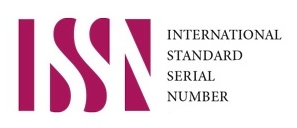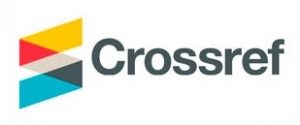Keywords cloud
Key words: angular motion of flying vehicle; touchdown point , methodological error of guidance , guidance of maneuvering supersonic flying vehicle Bibliography: 1. angular motion of flying vehicle; touchdown point , methodological error of guidance , guidance of maneuvering supersonic flying vehicle .
]]>4. Terminal guidance of the aircraft being maneuvering while descending in the atmosphere under conditions of aerodynamic balancing
Organization:
Yangel Yuzhnoye State Design Office, Dnipro, Ukraine
Page: Kosm. teh. Raket. vooruž. 2020, (1); 34-43
DOI: https://doi.org/10.33136/stma2020.01.034
Language: Russian
Annotation: High-precision guidance of supersonic flying vehicles maneuvering while descending in the atmosphere with high degree of thermal protection ablation is a well-known problem of space ballistics. The existing methods for calculating the ablation of thermal protection and the subsequent calculation of aerodynamic characteristics lead to scatter of the landing points of a flying vehicle reaching 5 km or more. The functional guidance method, in principle, allows achieving the required guidance accuracy (hundreds of meters), however, it requires a reserve of power of the controls at a level 50% to counter the influence of disturbing factors. The known terminal guidance method, which has recently become widespread, is based on a highly accurate prediction of motion parameters and, in this regard, has little promise. The method has been described in the article that allows 15-20-fold reducing the flight range scatters caused by lack of knowledge (including due to coating ablation) of its current aerodynamic characteristics and ensuring that the accumulated lateral deviation is counteracted in the limit to 1-1.5 km. The method is applicable to the flying vehicles with weight asymmetry (“transverse” displacement of the center of mass), performing maneuvering under conditions of aerodynamic balancing. The method is based on the solution to increase the accuracy of hits by spinning the shells around longitudinal axis. It is proposed that when a flying vehicle moves in the dive mode by means of the onboard CVC, it is regular (at intervals) to calculate its flight path in the (conditionally) autorotation mode. Based on the results of processing single calculations, the corresponding flight ranges of a flying vehicle and the lateral displacement of the touchdown points are determined, the point in time is predicted at which the flight range of the flying vehicle is equal to the specified one and the average lateral deviation is determined. At this moment the angular movement of the flying vehicle is transferred to the autorotation mode. Counteraction of the lateral displacement is introduced by adjusting the half-periods of flying vehicle movement along the angle of the precession. An example of pointing a flying vehicle at a given range, and bringing it to the touchdown point, shifted to the right relative to the original flight path by 1 km. The error of the terminal guidance of a maneuvering while reducing the aircraft using the proposed guidance method is determined.
Key words: angular motion of flying vehicle; touchdown point, methodological error of guidance, guidance of maneuvering supersonic flying vehicle
Bibliography:
1. Eliasberg P. Е. Vvedenie v teoriiu poleta iskusstvennykh sputnikov Zemli. М., 1965. 540 s.
2. Lebedev А. А., Gerasiuta N. F. Ballistika raket. М., 1970. 244 s.
3. Levin A. S., Mashtak I. V., Sheptun А. D. Dinamika manevrirovaniia v atmosphere LA s vesovoi asimmetriei i elementami terminalnogo upravleniia na uchastke razvorota. Kosmicheskaia tekhnika. Raketnoe vooruzhenie: sb. nauch.-tekhn. statei / GP “KB “Yuzhnoye”. Dnipro, 2019. Vyp. 1. S. 4–14. https://doi.org/10.33136/stma2019.01.004
4. Chandler D. C., Smith I. E. Development of the iterative guidance mode with is application to varies vehicles and missions. Journal of Spacecraft and Rockets. 1967. Vol 1.4, №7. P. 898-903. https://doi.org/10.2514/3.28985
Full text (PDF) || Content 2020 (1)
Downloads: 80
Abstract views:
1151
Dynamics of article downloads
Dynamics of abstract views
Downloads geography
| Country | City | Downloads |
|---|---|---|
| USA | Boardman; Matawan; Baltimore;; Boydton; Plano; Columbus; Phoenix; Phoenix; Phoenix; Phoenix; Phoenix; Phoenix; Phoenix; Phoenix; Phoenix; Phoenix; Phoenix; Phoenix; Phoenix; Phoenix; Phoenix; Monroe; El Monte; Ashburn; Seattle; Seattle; Columbus; Ashburn; Ashburn; Ashburn; Ashburn; Mountain View; Mountain View; Portland; San Mateo; San Mateo; San Mateo; San Mateo; San Mateo; Ashburn; Des Moines; Boardman; Ashburn; Ashburn; Ashburn; Ashburn; Boardman; Ashburn; Pompano Beach | 50 |
| Singapore | Singapore; Singapore; Singapore; Singapore; Singapore; Singapore; Singapore; Singapore; Singapore; Singapore; Singapore; Singapore; Singapore; Singapore; Singapore | 15 |
| Canada | Toronto; Toronto; Monreale | 3 |
| Germany | Falkenstein; Falkenstein | 2 |
| Netherlands | Amsterdam; Amsterdam | 2 |
| Unknown | ; | 2 |
| Ukraine | Dnipro; | 2 |
| Finland | Helsinki | 1 |
| Pakistan | Lahore | 1 |
| France | Paris | 1 |
| Romania | Voluntari | 1 |


